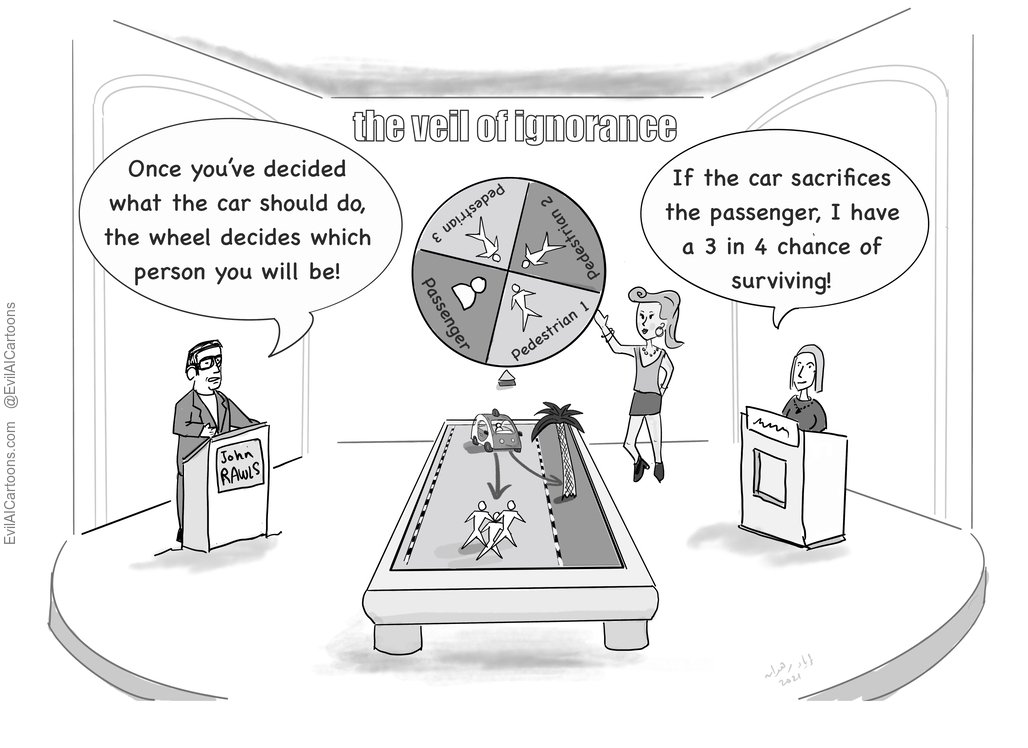Put citizens behind the veil of ignorance
Recall that social dilemmas can occur when consumers, acting in their own self-interest, purchase the AI that is optimal for themselves (e.g. a driverless car that puts their own safety first) at the expense of others (e.g. minimizing total harm from traffic accidents).
Let us unpack that a little bit. Say a family purchases a vehicle that prioritizes their own safety. This increases their own safety a little, whenever they are passengers in the car. However, this choice contributes to an ecosystem of vehicles that do not minimize overall harm from traffic accidents. So when the same family is going on a walk and crossing the street, other driverless cars may not prioritize them as pedestrians.
Still, the reason this is called a dilemma is that the family has interest in purchasing a self-protective car, regardless of what other people do. But if you recall, our studies showed that people did not support regulations that force all cars to be pro-social, in the sense of minimizing total harm. Can we change that by reminding people that they might occupy different roles on the road, as not only passengers but also pedestrians?
Recently, Karen Huang, Joshua Greene and Max Bazerman of Harvard University tested this idea. They presented the ethical dilemma of driverless cars to people, and reminded them that they may either be the person in the car, or one of nine pedestrians crossing the road. Without knowing which of the ten potential victims of the crash they will be, self-interested people would rationally choose a world in which the cars are required to save more lives. And indeed, the experiment showed significant increase in public support for regulations that require cars to save the most lives, rather than prioritize passengers.
This solution is inspired by the work of late political philosopher John Rawls. When deciding which society we want to live in, we must choose from behind a Veil of Ignorance, which prevents us from knowing which member of the society we will be. Rawls claims that when we are in this ‘original position’, we favor a more just society. So when we choose which regulatory regime to live under, while considering that we may either be passengers or pedestrians in any given dilemma situation, it makes sense to choose the just car.
References
Huang, K., Greene, J. D. & Bazerman, M. Veil-of-ignorance reasoning favors the greater good. Proc. Natl. Acad. Sci. U. S. A. 116, 23989–23995 (2019).
Rawls, J. A theory of justice. (Harvard university press, 1971).
